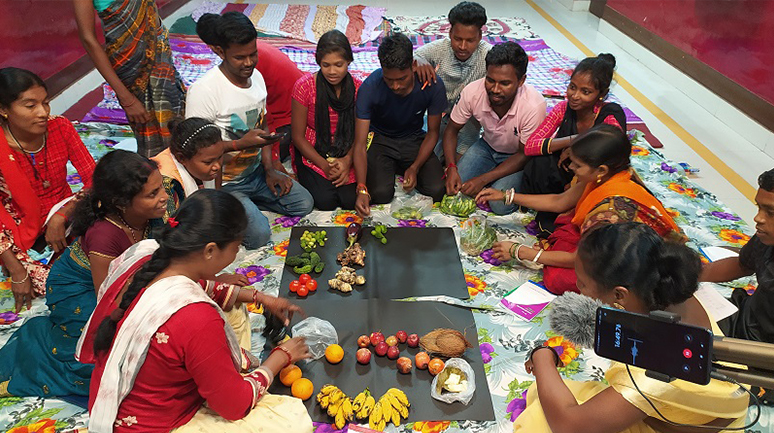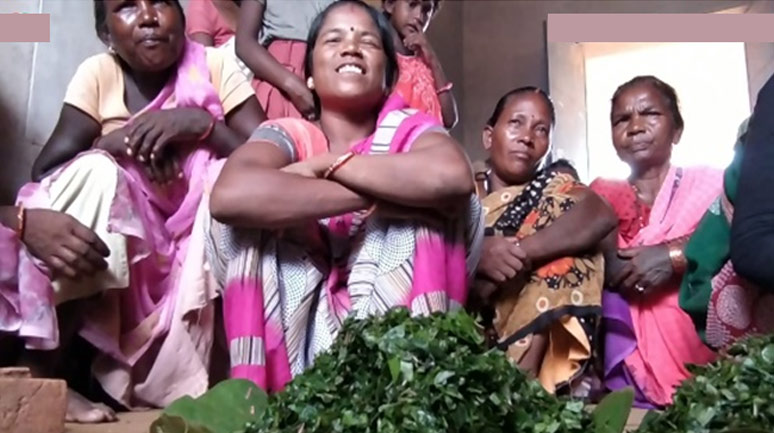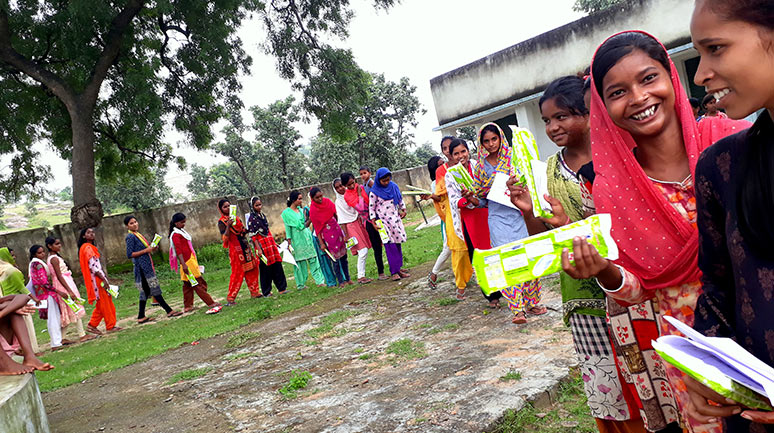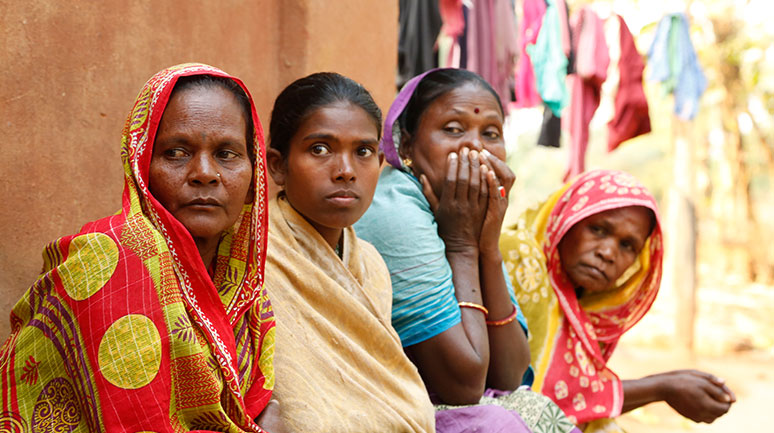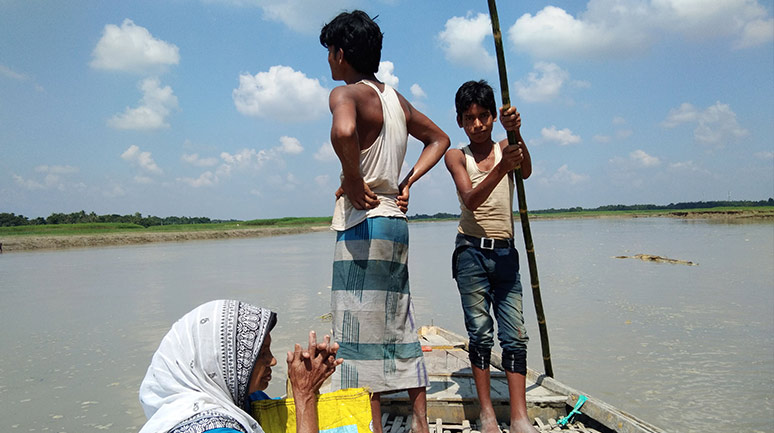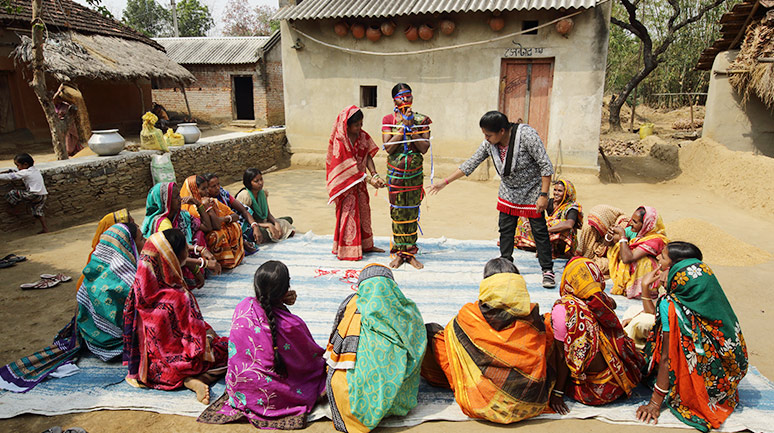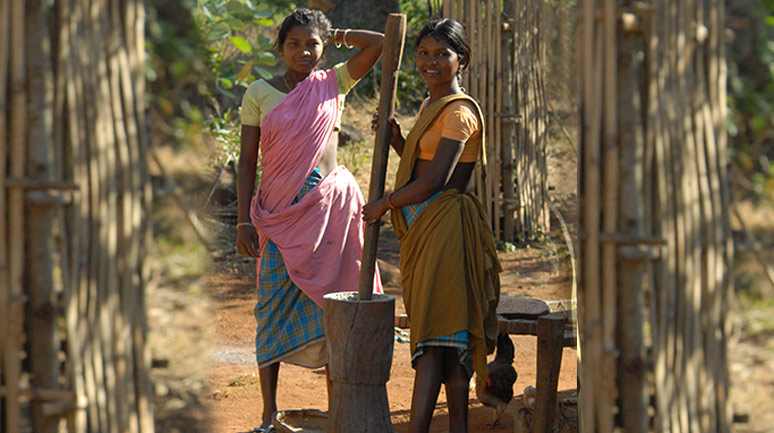December 10, 2021
December 10, 2021
Categories
The Sustainable Food Systems project aims to address food and nutrition security alongside gender equality in the poorest regions of India and seeks to increase dialogue around diet and health and share knowledge. One way to enable communities to reclaim traditional knowledge about diet and health is through curriculum development.
November 21, 2020
Atul Purty November 21, 2020
Categories
The COVID pandemic has brought about an unexpected realization among villagers—the value of their traditional food items and practices, which are resilient, sustainable and can be relied upon to help them live through any crisis
September 24, 2020
Annesa Sarkar September 24, 2020
Categories
By letting go of the shame and secrecy that girls experience about having their period and by openly having discussions and understanding about why they have a period every month, the girls are sending a very powerful message, challenging their subjugation in society
April 6, 2018
Pushkar Jha April 6, 2018
Categories
The article focuses on the necessity to improve personal and individual lives, an aspect that has so far been ignored in the endeavour to bring about financial stability by enhancing livelihood
October 5, 2017
Trishagnee Boruah October 5, 2017
Categories
Hearing about floods and actually experiencing the death and destruction it wreaks are totally different; the PRADAN team realizes this as it struggles to find solutions to counter the devastating effects that the receding waters leave behind for the villagers
September 5, 2017
Mohini Saha September 5, 2017
Categories
Taboos, superstitions, lack of awareness, lack of infrastructure, shame and embarrassment about menstruation are barriers to the confidence, self-esteem and dignity of girls and women, affecting their well-being and health as a consequence
September 2, 2017
Ashutosh Mishra September 2, 2017
Categories
Giving up on traditional food and blindly having ‘development’ agendas in agriculture thrust on them has resulted in the tribals losing their wise and time-tested habits and practices, leading to heavy loss in health and economic terms. Today, they are neither here nor there—neither modern, ‘developed’ and prosperous nor in touch with their own indigenous crop cultivation methods and wholesome food habits
January 5, 2015
Sudarshan Thakur January 5, 2015
Categories
Realizing that there is no single approach to engaging with women in order to organize them into SHGs, the Kishanganj team found success when it was willing to let go of its biases and identified the pressing needs of the women in the Muslim-dominated hamlet, supporting them in the areas of health and nutrition before considering savings and credit
January 1, 2015
Avijit Mallik January 1, 2015
Categories
Having been able to assure food security among the villagers and realizing that economic self-sufficiency alone was not going to alleviate the basic problems faced by women, the focus in Jolhakarma is on ensuring pipe water supply and sanitation units within homes to assure them a life of dignity, free from the ordeal of open defecation and the drudgery of getting water for daily use from remote sources


